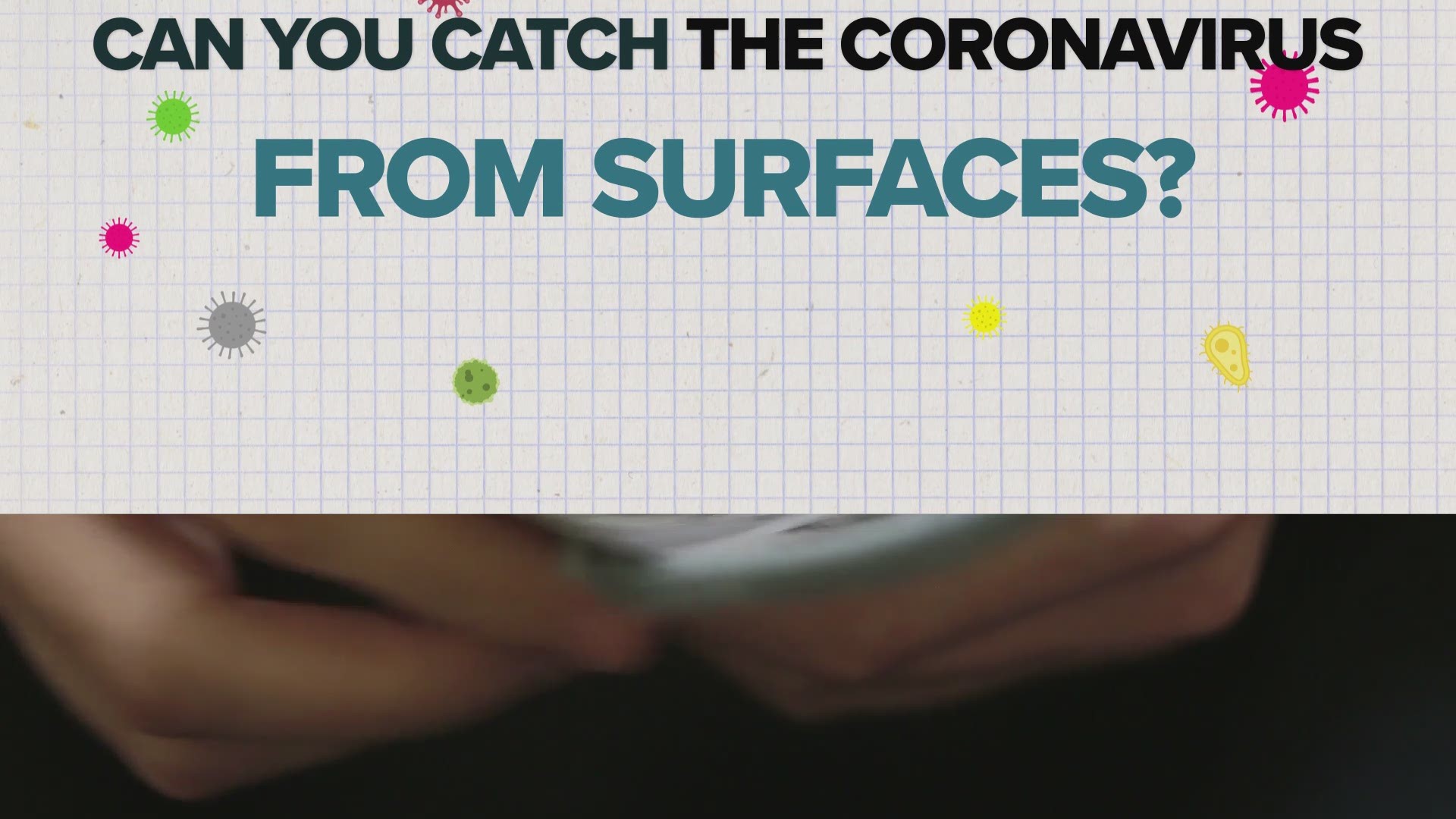While the majority of North Texas remains under some variation of a “stay-at-home” order, grocery shopping is still allowed.
If you are unable to visit the grocery store, experts say getting your groceries delivered is a great way to still get items you need. If you do head to the store, you’ll want to follow several precautions while you’re there and even when you get home.
Here is a breakdown of how to navigate grocery shopping during the novel coronavirus pandemic.
Safety tips at the grocery store
The Centers for Disease Control and Prevention says you do not need to wear a face mask to the grocery store.
Instead, try to limit your trips and stay home if you are sick. If you do go to the store, following these preventive measures recommended by the CDC:
- Wash your hands often with soap and water for at least 20 seconds. If you don't have access to soap and water use a hand sanitizer that contains at least 60% alcohol.
- Cover your coughs and sneezes.
- Avoid touching your eyes, nose, mouth with unwashed hands.
- Practice social distancing by staying 6 feet apart from other shoppers.
- Use disinfecting wipes to wipe down your grocery cart.
Which pantry items should I buy?
The Academy of Nutrition and Dietetics recommends keeping the following items stocked in your pantry:
- Dried or canned beans, peas and lentils (such as black, garbanzo, kidney, white and pinto beans; green, yellow or split peas and lentils)
- Canned vegetables with no added salt (such as tomatoes, green beans, and corn)
- Dried or canned fruit in 100% fruit juice
- Whole grains (such as brown rice, quinoa, oats, millet, and whole-wheat pasta)
- Pouches or canned fish and chicken
- Nuts, seeds, and nut butters
- Olive, canola or other vegetable oils
- Dried herbs and spices
Frozen Foods
- Vegetables (such as broccoli, cauliflower, carrots, and brussels sprouts)
- Fruit (such as berries and cherries )
- Whole wheat pizza dough
- Poultry
- Seafood
Good Morning America also shared a list of foods to buy during your run to the grocery store. Click here to read the full story.
Do I need to clean my groceries when I get home?
According to the Centers for Disease Control and Prevention, there is no evidence to support the transmission of COVID-19 associated with food.
Experts, however, still suggest throwing out disposable bags, wiping down your counters and washing your hands to be safe.
The New York Times interviewed Dr. Daniel Winetsky, an infectious diseases fellow at Columbia University Irving Medical Center about best practices when handling groceries.
When asked if people should wipe down jars and plastic containers, Winetsky said contamination from jars and plastic containers is not a big risk.
When it comes to unpacking produce, Dr. Elizabeth Eckstrom, professor and chief of geriatrics at Oregon Health & Science University told the Times that people should wash raw produce with an organic soap specifically for vegetables or any natural dish soap.
“I am not wiping everything down, but I am carefully washing my hands after touching these grocery items,” Dr. Eckstrom said. “Cooking does kill the virus, but any fresh produce that is eaten raw should be carefully washed.”
Shopping at local pantries
If going to the grocery store is something you're trying to avoid altogether, you can try shopping at your favorite restaurant. Several restaurants around Dallas-Fort Worth have opened pantries and are selling fresh produce and other household items.
For example, Oddfellows in the Bishop Arts District opened an outdoor market that has fresh items that might be out of stock at grocery stores.
Get your groceries delivered
And if you prefer to stay home, many stores are offering "contactless" delivery options. This means you can get your groceries dropped off right in front of your door.
Dr. Simone Wildes, an infectious disease specialist, told ABC News that one of the safest things to do right now is "not to make contact with the delivery person" during the handoff.
Instead, wait until the person leaves and then pick-up your items from your door.
James Rogers, the director of Food Safety Research and Testing for Consumer Reports, told Good Morning America that the key to navigating grocery delivery apps is to plan ahead. Another friendly suggestion is to tip the person if the app allows it.
National store chains and apps such as InstaCart offer delivery options but you can always try a local option, such as Favor or Alto.

